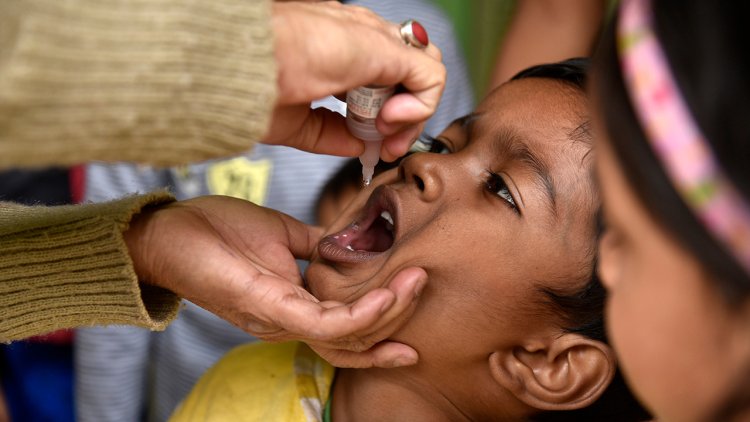Scientists develop 2 new polio vaccines to help eradicate viral disease

New Delhi: Scientists have developed two novel oral polio vaccines (nOPVs) that they say will bolster the World Health Organization's most recent push to finally eradicate the viral disease.
The two nOPVs, recently described in the journal Nature, are made from weakened poliovirus that has been genetically engineered to reduce reversion to dangerous forms of the virus.
"With such variation in vaccination within and between countries, poliovirus has persisted into the 21st century, with sometimes tragic consequences," said Raul Andino, a professor at the University of California, San Francisco (UCSF) in the US.
"We have designed these new vaccines using lessons learned from many years of fighting polio and believe they will help eliminate the disease once and for all," said Andino, co-senior author of the research paper.
Polio is usually asymptomatic, but can cause severe disability, paralysis or death in about one in every hundred children. It spreads via fecal or oral particles, so it is particularly problematic in regions with poor sanitation.
The first effective polio vaccines emerged in the 1950s, kicking off massive campaigns to immunise every person, with an emphasis on children.
While the original, or "wildtype," poliovirus has only been recently detected in Afghanistan and Pakistan, vaccine-derived polio has been detected in countries as far flung as Syria, the Democratic Republic of Congo, and the US.
There have been more cases of vaccine-derived polio than wildtype in recent years, creating an urgency to counter this new source of polio, the researchers said.
The nOPV2 vaccine developed by the team earned the WHO's first-ever emergency use listing in 2020 and was quickly manufactured and distributed.
"Over 600 million doses were delivered to more than 28 countries, and in ten instances it stopped ongoing outbreaks of vaccine-derived polio. It gave us a lot more confidence that this actually was working as anticipated," said Andino.
Despite its effectiveness, nOPV2 only protects against one of three strains of polio, and cases of polio have recently emerged in Israel, which is heavily vaccinated, as well as in pockets of the US where people refuse to vaccinate their kids.
"If there's polio anywhere, it will come back where there are gaps in vaccination," Andino said.
The latest work from Andino's group takes the solution they crafted for nOPV2the three mutations that usually prevent the vaccine from becoming dangerous over timeand engineers it into the other two types of OPV.
The resulting vaccines, nOPV1 and nOPV3, effectively prevented polio in animal models. All three are much safer than the original OPVs, which can occasionally cause paralysis in those who get the vaccine, although this is rare, the researchers said.
The two new vaccines are currently being tested in clinical trials to ensure that they are both effective and do not revert to dangerous forms in humans.
Andino is hopeful they will be incorporated into bivalent or trivalent combinations with nOPV2. Children of the future will be equally protected from polio for life, and perhaps the world will someday experience decades in which zero polio is detected, the researchers added.
"The perception that polio is gone is a dangerous one. For instance, just in India, 500,000 children are born each week, an enormous number of susceptible people. We now have what we need to protect them," Andino added.















































